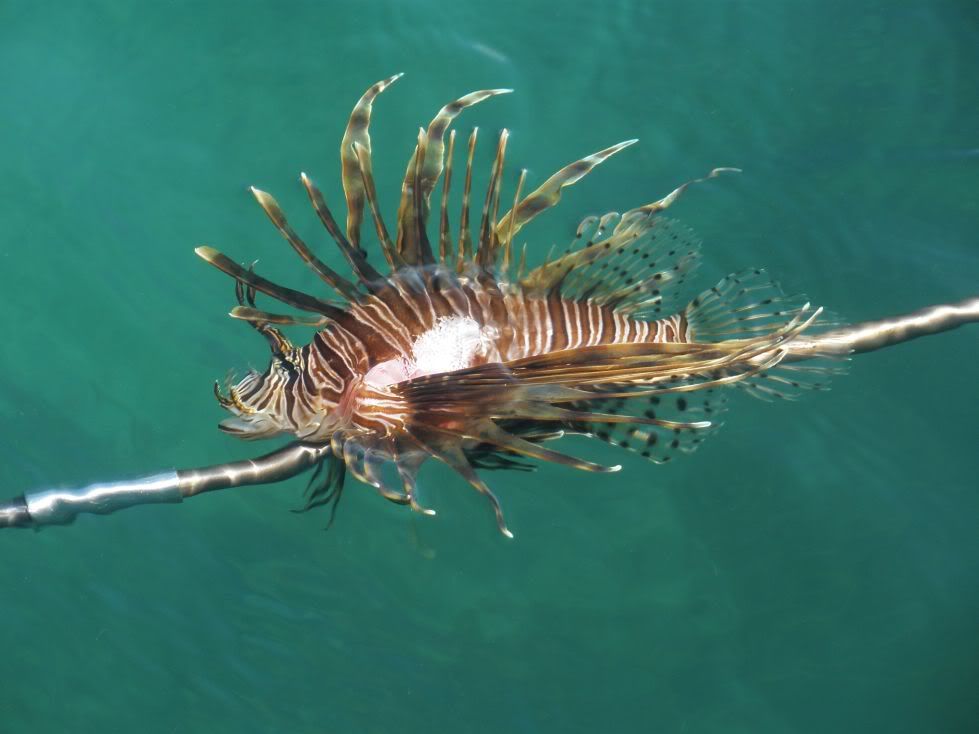1.
http://www.blueringedproduction.com/index.php?id=45 -(I've seen more scorpionfish diving in Bonaire in a day than I've seen in many other Carribean Dive destinations. And eels for that matter. (I don't particularly think that they eat lionfish in the Carribean, but it's just a thought)

2.
lionfish progression
-Here's a USGS map suggesting why the Lionfish has just become a problem in Bonaire, outside of sheltering on the "wild" sides of the island.
-Seems to me that some form of complacency (or plain just overwhelming) was originally responsible for the lionfish taking hold in the Bahamas, etc, in the first place. While I don't doubt that it's just a drop in the ocean, I do maintain that there are bound to be specific ecoysystems in the Carribean where the Lionfish will not proliferate, as easy. (Such as, perhaps, Bonaire, or some other fairly "pristine" reef system.) We may find ecosystems that can resist the onslaught or are not as prone to "lionfish proliferation" due to zoologic structure of the reef, unique predator food chains, etc.
Reguardless what prevailing currents drive the lionfish in to Bonaire from Belize, or where ever, making a dent in populations prior to long-term establishment can make a difference, especially in a more "isolated" reef/island system. And I do believe that in a special "instance" like Bonaire visited by onslaught after onslaught of "generally" speaking knowledgeable divers, removal can make a difference. Obviously, we will never get every lionfish, and don't dive every single reef, but we would get many.
Natural selection in some form or another would probably help cut down the rest.--Even without widespread predation.
-To say that it would make no difference at all, if not in the entire Carribean, at least locally it should.




